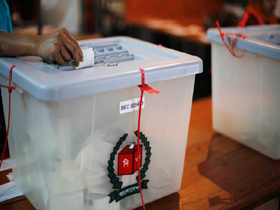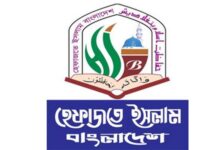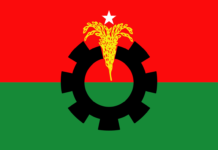The actual history is unknown to many people because of escapism, says Sharmeen
Sharmeen Ahmed, daughter of the founding prime minister of Bangladesh Tajuddin Ahmed, has said “the name of the life and soul of the liberation war had been deleted from the history as the curriculum was to some extent individualistic.”
She said: “Bangabandhu and Tajuddin were synonyms to each other, however, the name of Tajuddin has been deleted from history.”
She made the statement while addressing the publication ceremony of her book Tajuddin Ahmed: Leader and Father at a city bookstore on Friday.
“Whenever we discuss about the liberation, we go to January 1972 from March 25 of 1971, however the history of the nine months of the liberation war remains untouched. The actual history is unknown to many people because of escapism,” she added.
She also said there were many controversies regarding the history of the war of independence, as there was an effort to implement political agenda in the name of history.
“There was an effort to raise controversy centering my book. I will request all to read the whole book instead of raising controversy by reading it partially,” she said.
Barrister Amirul Islam, an aide of Tajuddin during the liberation war, said the history writers would be able to use the book of Sharmeen as a reference adding that the writer had tried to manifest different things with sincerity.
Former Chittagong mayor ABM Mohiuddin Chowdhury and economist professor Mainul Islam also addressed the function.
Tajuddin Ahmed had served as the first PM of Bangladesh and lead the wartime provisional government during the Liberation War in 1971, in absence of Bangabandhu.
A close confidante of Bangabandhu, Tajuddin was the general secretary of the Awami League in the late 1960s and early 70s. He coordinated the AL’s election campaign for the Pakistani general election, 1970, in which the League gained a historic parliamentary majority to form government.
After the liberation of Bangladesh, he became finance minister in the Mujib government in 1972.
After Bangabandhu’s assassination in August 1975, he was arrested. Along with four other top League leaders, he was executed by members of the military in Dhaka Central Jail on November 4, 1975.
Source: Dhaka Tribune











I can relate to what sharmeen has said. I saw the video clip of her speech at the launching of her book. My father worked very closely as the roving Ambassador of the Mujib Nagar Government, took instruction and advice from late Tajuddin Ahmed, was amazed why his great contribution, planning for the liberation movement etc was not being highlighted in our history. My father said that he was honest, sincere, intelligent and committed and yet humble. The book can be a great inspiration for our young generation. I sincerely congratulate the worthy daughter of the great Tajuddin Ahmed.
As a freedom fighter and a sub-sector commander, I had the unique opportunity of meeting Tajuddin Ahmed several times during our liberation war. The reason for that is, he was the only leader who was known to visit the various sectors from time to time and inquire about the on going war and the welfare of the freedom fighters. Not even our commander late Gen.Osmani did that, much less the other “leaders” who were more keen on shopping and watching Indian movies with their family members in the safety and comfort of Kolkata. Tajuddin Ahmed was my hero of the liberation war. May Allah have mercy on his soul.
Why lament for Tajuddin Ahmed having been ‘deleted from history’? Has this great leaders not been represented by his wife, brother, son and now his daughter? Is it not perplexing that even his wife being an important member of the central committee of the AL, how her late husband’s name could be ‘deleted’ from history? How could she and her children compromise with such ingratitude and ignominy? Being involved with the affairs of the exiled govt of Bangladesh in my little capacity, I know how dexterously, wisely and successfully he brought about the end of our sufferings and gifted us with an independent country. But we have always been surprised how he could be ‘deleted’ from the history of the liberation of Bangladesh. Anyone with reason will admit that Bangabandhu was a dreamer but it was undoubtedly Tajuddin Ahmed who made his dream come true. But whatever and however effort may be made to make us forget Tajuddin Ahmed, he will remain an inseparable part not only of our memory but also of history of independence Bangladesh.